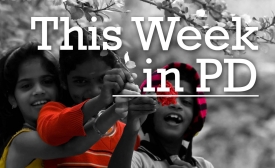countering violent extremism
According to a Rasmussen poll released Monday morning, more voters than ever believe terrorists have an advantage over the United States and her allies. [...] 'As incredible as it may sound, the U.S. government still lacks the capacity to coordinate its global counterterrorism strategy. This disturbing finding is reflected in two recently released reports, one by a bipartisan task force of the House Homeland Security Committee and the other, the 2015 Comprehensive Annual Report on Public Diplomacy” by the Advisory Commission on Public Diplomacy (ACPD).'
When US President Barack Obama recently spoke at the United Nations about countering the Islamic State, many of his critics complained that he put too much emphasis on diplomacy and not enough on the use of force. It is more accurate to see the current mood as a swing of the US foreign policy pendulum between what Columbia University’s Stephen Sestanovich has called “maximalist” policies and “retrenchment” policies.

PD news headlines this week explore the role of millennials in public diplomacy.
The group, led by former U.S. envoy to the United Nations for management and reform issues Mark Wallace, as well as former Homeland Security Advisor Fran Townsend, former Sen. Joe Lieberman, and others, is hosting a summit on Monday that “will draw more than 100 youth activists and government officials to New York City from dozens of countries,” it says. The efforts are aimed at preventing young people from being lured into extremist ideology, particularly on the Internet.







